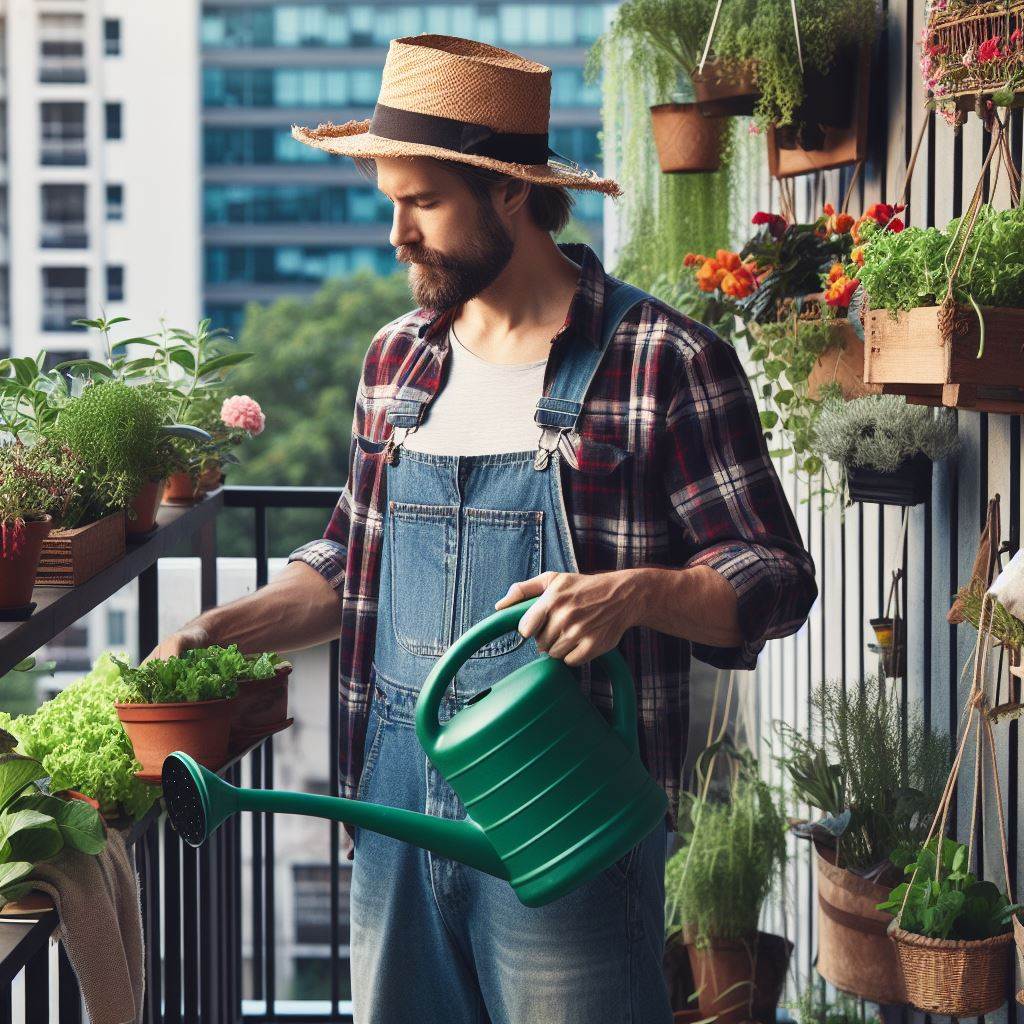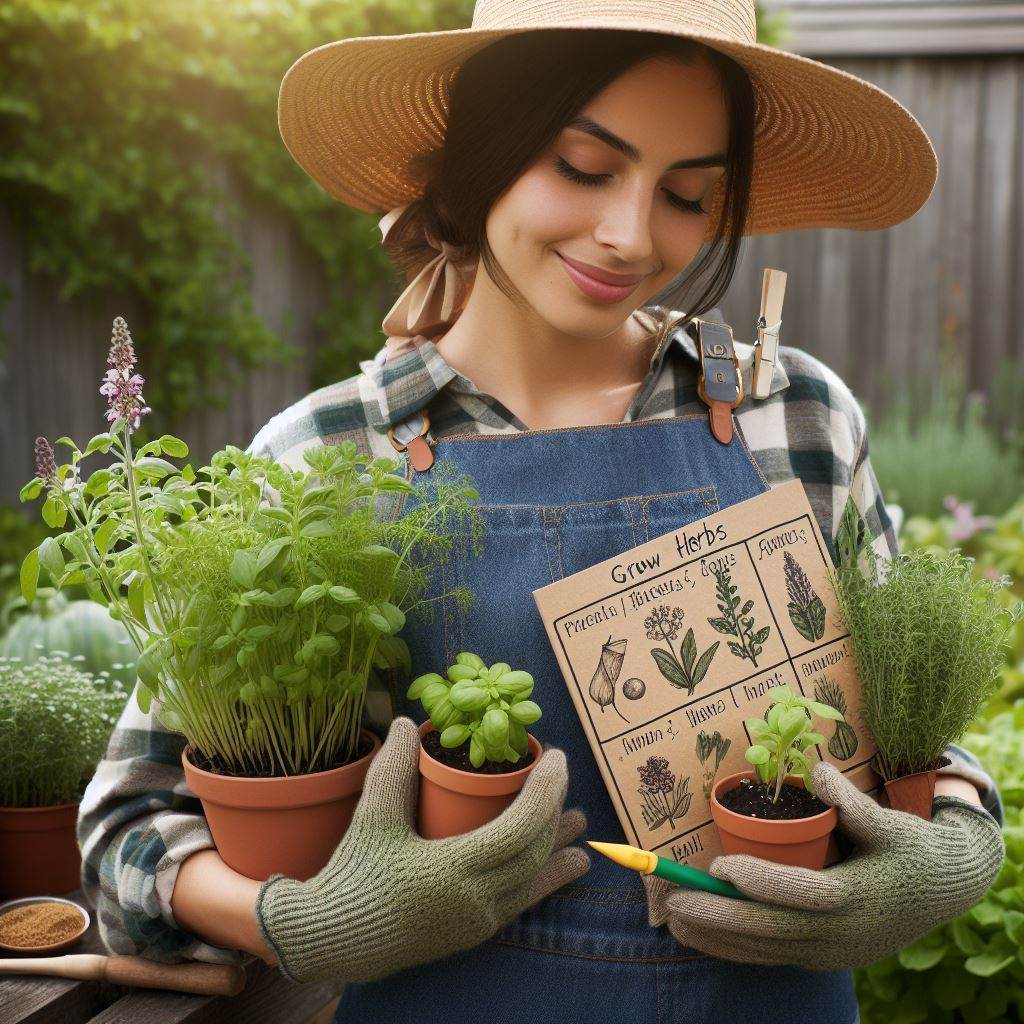Introduction
Choosing the right plants for farming plays a crucial role in ensuring a successful harvest.
By selecting the appropriate plants, farmers can optimize yield and quality while reducing disease susceptibility and environmental impact.
In this blog section, we will explore the differences between heirloom and hybrid plants and help you decide which type is best for your farm.
Brief explanation of the importance of choosing the right plants for farming
Selecting the right plants for farming is essential because it directly impacts the overall success of agricultural operations.
Different plants have distinct characteristics, such as growth rate, yield potential, resistance to pests and diseases, adaptability to specific climates or regions, and nutritional content.
By carefully considering these factors, farmers can maximize their productivity, minimize losses, and meet market demands efficiently.
Introduce the topic of heirloom and hybrid plants
When it comes to plant selection, two primary categories are heirloom and hybrid plants.
Heirloom plants are open-pollinated varieties that have been cultivated for generations and remain true to their original form.
These plants often have unique traits, exceptional flavors, and historical significance.
On the other hand, hybrid plants are created by crossbreeding two different plant varieties to produce offspring with desirable traits, such as increased yield, disease resistance, or uniformity.
In the next sections, we will delve deeper into the characteristics, benefits, and considerations of both heirloom and hybrid plants.
By understanding their distinctions, farmers can make informed decisions and choose the most suitable plants for their specific farming goals and conditions.
Let’s explore the fascinating world of heirloom and hybrid plants and unlock their potential for your farm.
Definition and Characteristics of Heirloom Plants
What heirloom plants are
Heirloom plants are varieties that have been passed down through generations, often for more than 50 years.
They are open-pollinated, meaning they rely on natural pollination by wind, insects, or birds.
What distinguishes heirlooms from hybrids is their ability to reproduce true to type, meaning the offspring possess the same traits as the parent plants.
These plants have historical significance and authentic flavors that have been cherished by gardeners for decades.
While hybrid plants generally offer higher yields or disease resistance, heirlooms have unique and diverse flavors.
Heirloom fruits and vegetables are often visually striking, with unique colors, shapes, and sizes.
Some heirloom tomatoes, for example, come in various shades of red, yellow, green, purple, and even striped.
Planting heirlooms allows you to connect with the past and preserve these treasured plant varieties.
Moreover, growing heirloom plants can contribute to biodiversity conservation and promote sustainability.
By saving seeds from heirloom plants, you can ensure their continued existence and pass them on to future generations.
The key characteristics of heirloom plants, such as their open
One of the defining characteristics of heirlooms is their open-pollination nature.
This means that their flowers are not manipulated or controlled to ensure specific crosses.
Instead, they rely on natural pollinators to carry their pollen from one plant to another.
This natural process allows for diverse genetic combinations and the development of unique traits.
Unlike hybrid plants, which are produced through controlled cross-pollination, heirlooms maintain their genetic integrity.
This means that if you save seeds from an heirloom plant, you can expect the same characteristics in the next generation.
The historical significance and authenticity of heirloom plants
Heirloom plants also have a historical significance that adds to their appeal.
Many heirloom varieties have been cultivated for centuries and have deep cultural roots.
They have been passed down from generation to generation, preserving their authenticity and heritage.
For example, the Mortgage Lifter tomato, an heirloom from the 1930s, was developed by a West Virginia farmer
who sold plants for $1 each to pay off his mortgage during the Great Depression.
This tomato quickly became popular for its large size, taste, and ability to feed a family.
The story behind the Mortgage Lifter tomato exemplifies the historical significance and charm of heirloom plants.
In addition to their historical value, heirlooms offer unique flavors that distinguish them from hybrids.
Hybrid plants are often bred for specific traits, such as disease resistance or uniformity, but flavor can sometimes be sacrificed in the process.
On the other hand, heirloom plants emphasize taste and diversity.
Each variety has its own distinct flavor profile, ranging from sweet and juicy to tangy and complex.
For example, Brandywine tomatoes are renowned for their rich, sweet, and earthy taste,
while Cherokee Purple tomatoes offer a unique smoky and sweet flavor.
These flavors cannot be easily replicated by hybrid varieties, making heirlooms a favorite among food enthusiasts and chefs.
Basically, heirloom plants are treasured for their historical significance, authenticity, and unique flavors.
They possess the characteristics of open-pollination and genetic stability, allowing for the reproduction of true-to-type offspring.
By planting heirlooms, you are not only embracing the past but also contributing to biodiversity conservation and preserving flavorful varieties for future generations.
Read: Attracting Beneficial Insects to Gardens
Definition and Characteristics of Hybrid Plants
What hybrid plants are
Hybrid plants are a result of crossbreeding different varieties of plants to create new ones.
This process involves carefully selecting parent plants with desirable traits and breeding them together.
The offspring of this crossbreeding process are known as hybrids.
The process of crossbreeding to produce hybrids
Hybrid plants possess several key characteristics that make them highly desirable for many gardeners and farmers.
One of the primary benefits of hybrid plants is their improved traits.
Through crossbreeding, breeders can select for specific traits like disease resistance, tolerance to certain environmental conditions, or improved taste.
This means that hybrid plants are often more resilient and better equipped to handle challenging conditions compared to their heirloom counterparts.
Another advantage of hybrid plants is their higher yield potential.
Breeders select parent plants with the goal of creating offspring that have better productivity and higher yields. T
his means that hybrid plants often produce more fruits or vegetables per plant, making them an excellent choice for those who want to maximize their harvest.
The key characteristics of hybrid plants, such as their improved traits and higher yield potential
In addition to improved traits and higher yields, hybrid plants also tend to have a more uniform appearance.
Their fruits or vegetables are often more similar in shape, size, and color compared to heirloom varieties.
This is an advantage for commercial growers who value consistency in their produce, as uniformity makes it easier to package and sell the crops.
Another characteristic of hybrid plants is that they are typically more widely available in the market compared to heirloom varieties.
This is because hybrid seeds can be produced on a large scale, ensuring a steady supply for farmers and gardeners.
On the other hand, heirloom seeds are often preserved and passed down through generations, making them more limited in quantity.
Transform Your Agribusiness
Unlock your farm's potential with expert advice tailored to your needs. Get actionable steps that drive real results.
Get StartedIt’s important to note that hybrid plants are not the same as genetically modified organisms (GMOs).
While both involve genetic manipulation, hybrids are created through traditional breeding methods, whereas GMOs involve altering the DNA of a plant using biotechnology techniques.
Hybrid plants are considered a more natural and traditional approach to plant breeding.
When deciding whether to plant hybrid or heirloom varieties, it ultimately comes down to personal preference and specific gardening goals.
If you prioritize traits like disease resistance, high yields, and uniformity, hybrid plants may be the way to go.
However, if you value preserving heirloom varieties with their unique flavors and historical significance, then heirloom plants are a better choice.
In general, hybrid plants are the result of crossbreeding different varieties of plants.
They possess improved traits, higher yield potential, and more uniform appearance compared to heirloom varieties.
While hybrid plants are more widely available, it’s important to consider your own gardening goals and preferences before deciding what to plant.
Read: Maximize Yields, Minimize Water in Urban Farms

Advantages of Growing Heirloom Plants
The benefits of growing heirloom plants in terms of taste and flavor
Growing heirloom plants offers a multitude of advantages that go beyond the ordinary.
Let’s explore some of these benefits in detail:
Superior Taste and Flavor
One of the most significant advantages of growing heirloom plants is the exceptional taste and flavor they provide.
Unlike hybrid varieties, which are often bred for traits like disease resistance and uniform appearance, heirloom plants have a diverse genetic makeup that contributes to their unique taste.
Whether it’s a savory tomato or a sweet melon, heirloom varieties tend to have a rich, complex flavor that is hard to match.
Cultural and Biodiversity Preservation
Another important aspect of heirloom plants is their role in preserving cultural heritage and biodiversity.
Heirlooms are often passed down through generations and come with a rich history and stories.
By growing heirloom plants, we contribute to the continuation of these cultural traditions.
Additionally, heirlooms often have genetic diversity, which is crucial for maintaining biodiversity and adapting to changing environmental conditions.
Cost-Effectiveness
Heirloom plants can be a cost-effective option for gardeners and farmers.
Unlike hybrids, which require purchasing new seeds every year, heirloom plants allow us to save seeds for future planting.
This can significantly reduce the cost of purchasing seeds, especially for larger-scale operations.
Additionally, as heirlooms are often open-pollinated, we can easily save seeds from our own plants, promoting self-sufficiency and reducing expenses.
Self-Sufficiency
Growing heirloom plants not only saves money but also promotes self-sufficiency.
By saving seeds from our own plants, we become less reliant on seed suppliers and have more control over our food production.
This allows us to develop self-sufficiency and resilience in times of economic uncertainty or disruptions to the supply chain.
Additionally, heirlooms’ ability to adapt to local conditions makes them an ideal choice for those aiming for self-sustainability.
In fact, the advantages of growing heirloom plants are diverse and far-reaching.
The superior taste and flavor they offer, coupled with their cultural and biodiversity preservation aspects, make heirlooms a valuable addition to any garden or farm.
Moreover, the cost-effectiveness and self-sufficiency they provide contribute to a more sustainable and resilient food system.
So, why not consider planting heirlooms and experience these benefits firsthand?
Read: Smart Watering: Techniques for Small-Scale Farms
Advantages of Growing Hybrid Plants
Growing hybrid plants have several advantages when compared to heirloom plants.
Hybrid plants are known for their disease and pest resistance.
They have been bred specifically to combat common diseases and pests, making them more resilient and less prone to infestations.
The benefits of growing hybrid plants in terms of disease and pest resistance
One of the main benefits of growing hybrid plants is their increased yield potential.
They have been genetically engineered to produce higher yields, which can be a major advantage for farmers and gardeners.
This means more produce can be harvested from the same amount of space, resulting in higher profitability and food availability.
The increased yield potential and shorter growing cycle of hybrid plants
Hybrid plants also have a shorter growing cycle compared to heirloom plants.
They mature at a faster rate, allowing for multiple harvests within a single growing season.
This can be particularly beneficial in regions with shorter growing seasons or for growers who wish to maximize their productivity and yield.
The uniformity and consistency in performance that hybrid plants provide
Hybrid plants offer consistency in characteristics like size, shape, color, and flavor, which is advantageous for commercial growers needing standardized produce for marketing and packaging.
This uniformity ensures that consumers consistently receive the same quality and taste with each purchase.
Moreover, hybrids are bred to withstand adverse environmental conditions such as extreme temperatures and drought, making them suitable for cultivation in various climates and geographic regions.
This resilience expands the possibilities for agriculture and provides growers with more flexibility.
Accessibility is another key advantage of hybrid seeds.
They are widely available and produced in large quantities by seed companies, making them easily accessible to farmers and gardeners.
This accessibility simplifies the process of incorporating hybrid plants into production systems without the need for specialized seed sources or extensive seed-saving practices.
Furthermore, hybrid plants are often bred to have improved flavor profiles and increased nutritional content compared to heirloom varieties.
This enhancement ensures that consumers receive the best possible product in terms of taste and health benefits.
Despite these advantages, there are drawbacks to consider.
Hybridization can lead to a reduction in genetic diversity, making plants more vulnerable to diseases or pests that may evolve over time.
Additionally, hybrid seeds cannot be saved and replanted for the next season, necessitating annual repurchase, which increases production costs.
In short, while hybrid plants offer numerous benefits such as consistency, resilience, accessibility, and improved traits, it’s crucial to weigh these advantages against potential drawbacks such as reduced genetic diversity and the need for annual seed repurchase.
Overall, hybrid plants remain a valuable option for optimizing production and meeting market demands.
Read: Water-Wise Gardening: Simple Steps for Hobbyists
Considerations for Choosing Between Heirloom and Hybrid Plants
When deciding what to plant in your garden or farm, it is important to consider whether you want to cultivate heirloom or hybrid plants.
Both options have their own set of advantages and disadvantages, making it crucial to evaluate your farming goals, market demands, and personal preferences.
Farming Goals
- Identify if you are focusing on sustainable farming or maximizing yield and profit.
- Heirloom plants are ideal for sustainable farming as they are open-pollinated and can be saved for future generations.
- Hybrid plants, on the other hand, offer increased yield, disease resistance, and uniformity.
Market Demands
- Research the preferences of your target market and determine whether heirloom or hybrid varieties are in demand.
- Many consumers value the unique taste, texture, and appearance of heirloom produce.
- However, hybrid plants may be favored if your market demands consistent and uniform products.
Personal Preferences
- Consider your personal preferences as a farmer or gardener.
- Heirloom plants often provide a wider variety of flavors and colors, allowing for culinary creativity.
- Hybrid plants can be advantageous if you prefer easier cultivation and higher productivity.
Specific Requirements and Challenges
Each plant type comes with its specific requirements and challenges:
- Heirloom plants require more attention and care, including proper seed saving and crop rotation.
- Hybrids may demand additional inputs like fertilizers or pesticides due to their high-yield characteristics.
- Consider your available resources and willingness to tackle these challenges.
Availability and Accessibility
- Examine the availability and accessibility of heirloom and hybrid seeds in your area.
- Heirloom seeds are more accessible through seed exchanges, local farmers, and heirloom seed companies.
- Hybrid seeds, on the other hand, can be easily obtained from commercial seed suppliers.
In a nutshell, choosing between heirloom and hybrid plants requires careful consideration of your farming goals, market demands, personal preferences, specific requirements, and accessibility of seeds.
Reflecting on these factors will assist you in making an informed decision that aligns with your needs and aspirations as a farmer or gardener.
Showcase Your Farming Business
Publish your professional farming services profile on our blog for a one-time fee of $200 and reach a dedicated audience of farmers and agribusiness owners.
Publish Your ProfileConclusion
When it comes to deciding between heirloom and hybrid plants, there are a few key factors to consider.
Heirloom plants offer diversity and historical significance, while hybrids are bred for specific traits and higher yields.
When choosing what to plant, it’s important to think about your individual needs and preferences.
Consider factors such as taste, disease resistance, adaptability to your local climate, and your gardening goals.
Ultimately, there is no right or wrong choice between heirloom and hybrid plants.
It’s a matter of personal preference and what works best for your garden.
Some gardeners may choose to grow a mix of both types, taking advantage of the unique benefits they offer.
If you’re still unsure about which plants to choose, there are many resources available to help you make an informed decision.
You can consult gardening books, websites, or local gardening experts to learn more about heirloom and hybrid plants.
Remember, the most important thing is to enjoy the gardening experience and have fun experimenting with different varieties. Happy planting!




